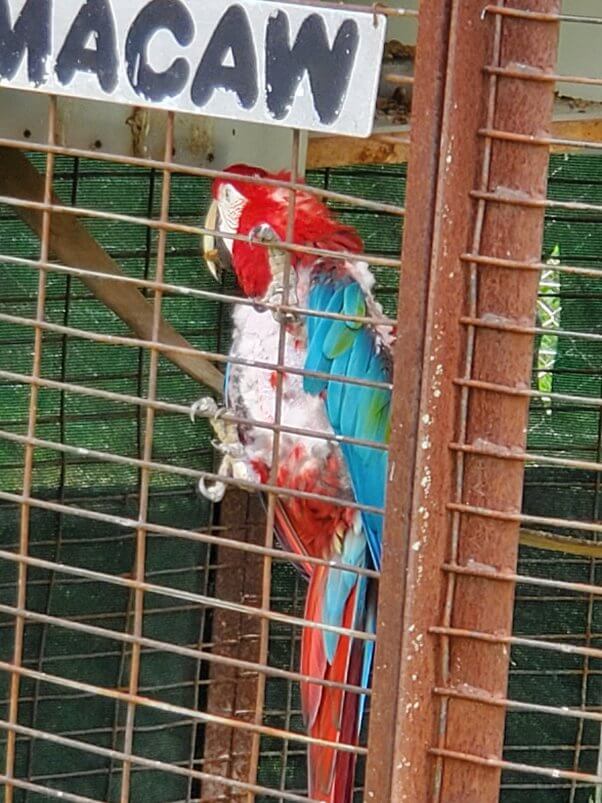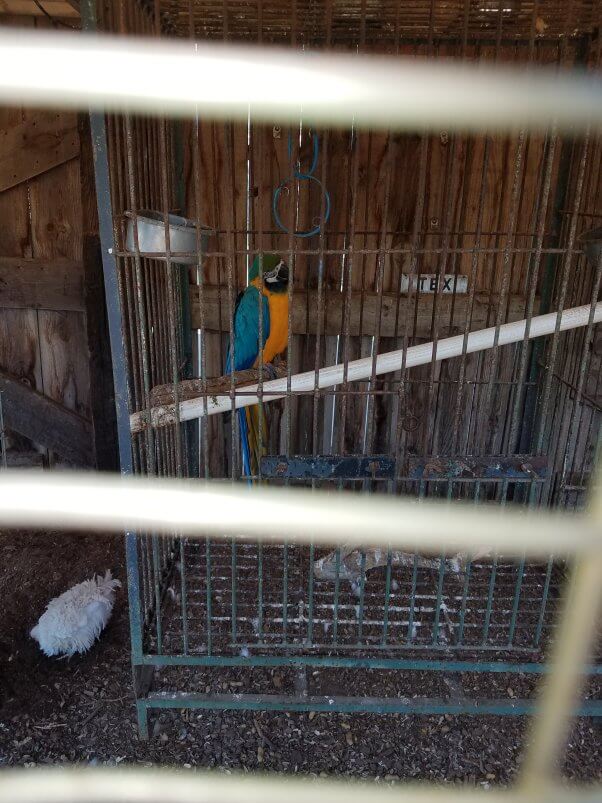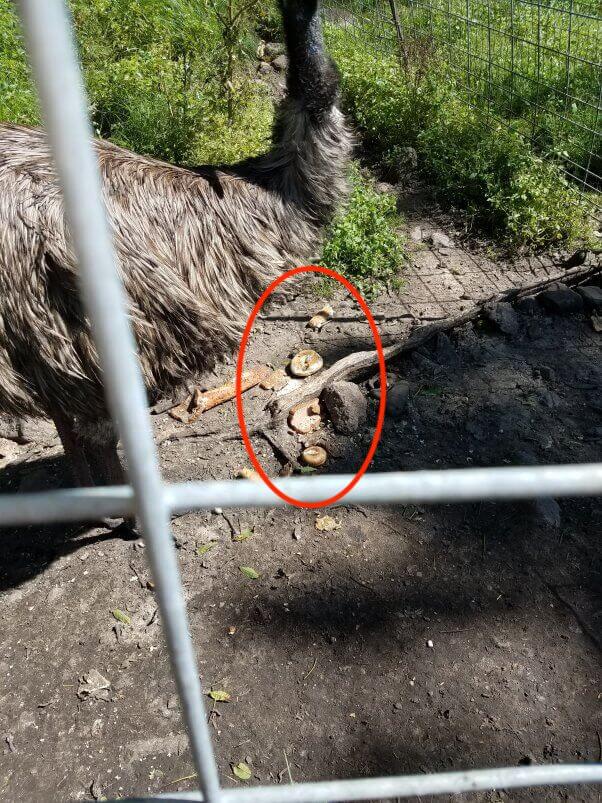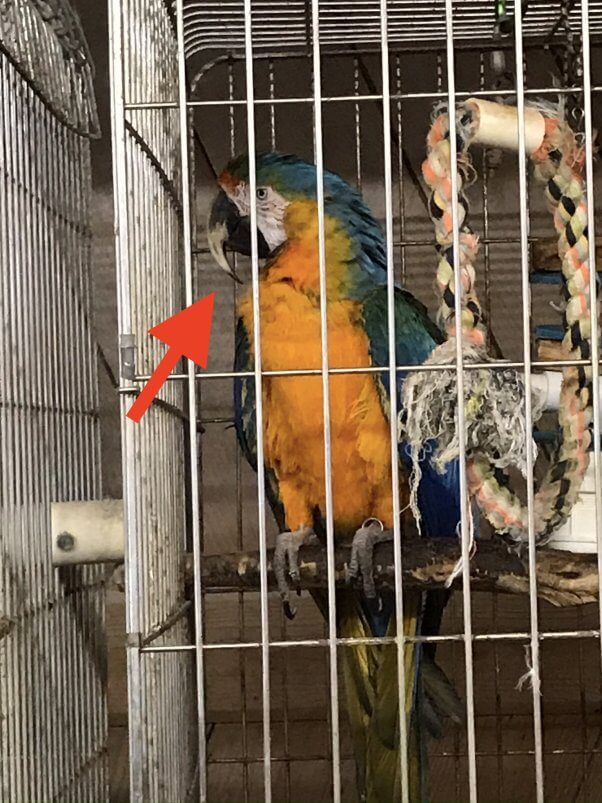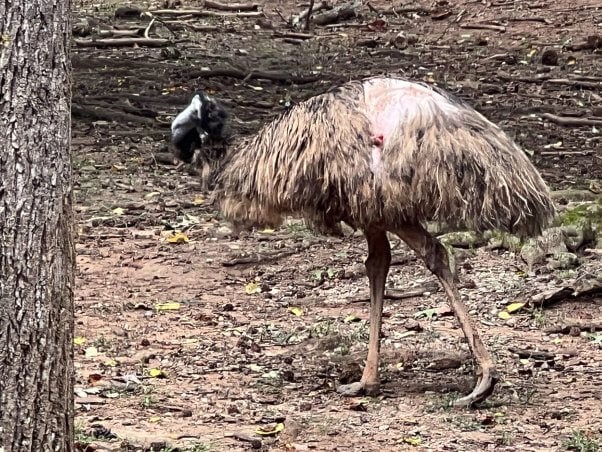Photos: USDA Violations and How to Spot Them to Help Protect Birds
After years of relentless pressure from PETA, the U.S. Department of Agriculture (USDA) is finally taking steps to provide some basic protections to birds in captivity under the federal Animal Welfare Act (AWA). While a new USDA rule to protect birds provides only minimal standards for the humane handling, care, treatment, and transportation of birds at certain facilities, it’s at least a step in the right direction.
With these new standards in place, facilities can now be punished if they’re caught providing less-than-adequate care to protected birds. If you purchased a ticket to a roadside zoo before you realized that supporting these cruel attractions continues the cycle of suffering, help make amends by reporting any violations you see. Here are just some issues the USDA will now be regulating:
Repetitive Behavior
Birds are intelligent animals who can become frustrated without adequate space and stimulation, just as humans do. If you see a bird swaying or nodding their head, making circular motions with their body, or even pacing, these can be signs that they’re not sufficiently stimulated by their environment. They sometimes develop these abnormal types of behavior in order to cope with their lack of enrichment.
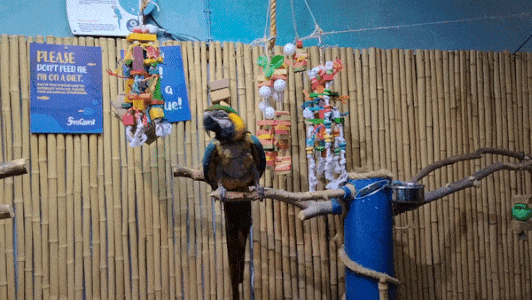
Excessive Feather-Plucking
Many roadside zoos leave birds in dark, vacant enclosures with no flockmates to interact with. When birds become stressed or frustrated, they may over-pluck their feathers, which can sometimes lead to serious trauma and even infection. A daily pellet diet in a clean dish, treats including fresh fruit and veggies as well as nuts (which can be challenging to open), interactive toys, natural shelters, and clean bird baths are the bare minimum essentials for captive birds.
Fighting Birds
Roadside zoos often house different bird species in the same area, a practice that would now violate the USDA’s new regulations. Housing incompatible animals can force smaller birds to fight with larger birds for space, food, and shelter. Even if they’re the same species, incompatible birds forced to live in the same area can fight and inflict injuries on one another. For example, chickens will peck at smaller, weaker chickens, which can lead to infection or even death.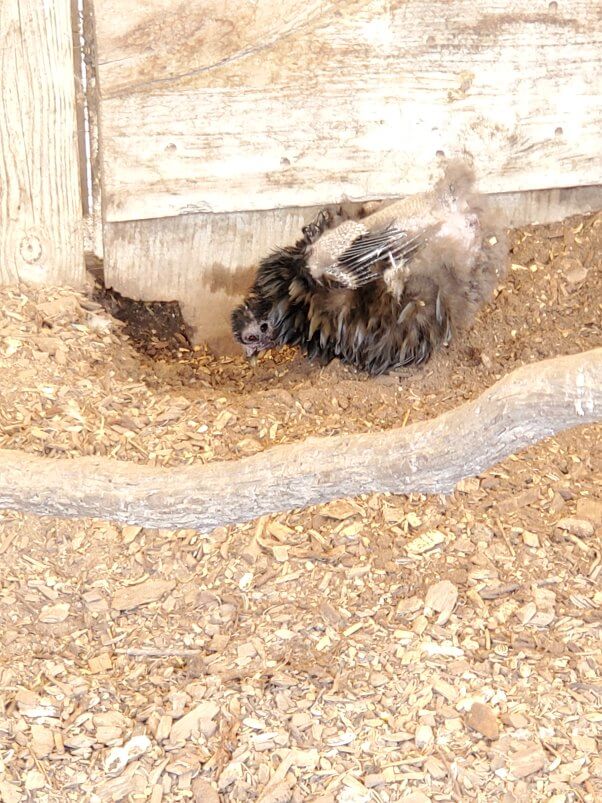
Filthy Cages
Inadequate cages, severe crowding, dirty food and water bowls, and lack of shelter are common at roadside zoos. In many facilities, parrots live in cramped aviaries without sufficient room to fly.
PETA often receives reports about birds being kept in unsafe enclosures at roadside zoos, which can be dangerous for both them and human visitors. Some facilities have enclosures that allow visitors to toss food in, which can expose birds to unsafe or even deadly food such as avocados.
Overgrown Beaks and Claws
Medical issues such as bumblefoot in chickens and overgrown beaks in parrots are common at roadside zoos. Both can be signs that birds aren’t receiving adequate veterinary care. In nature, birds will maintain their beaks by eating hard nuts and even bark. In captivity, they often need routine assistance with trimming their beaks and nails, which otherwise will continue to grow, causing various issues, including an inability to eat properly.
Open wounds on a bird could be the result of incompatibility or frustration as well as a sign of lack of veterinary care.
***
Until now, USDA inspectors disregarded conditions for birds, but they can no longer turn a blind eye. When facilities fail to meet these minimum requirements, they can face serious consequences—including warnings, civil penalties, and suspension or revocation of licenses.
PETA will continue to push for stronger regulations until all bird species receive appropriate protections under the AWA.
The easiest way to help birds and other animals in roadside zoos is never to visit such facilities. Encourage your friends, family members, and social media followers to do the same. But if you find yourself at a roadside zoo simply because you didn’t know about the suffering before you bought a ticket, reporting these violations can still help those in need.
Also, if you see videos or photos on social media that expose any of these issues, collect all the information you can and report it to PETA. You can send us a tip that can help us advocate for animals in roadside zoo hellholes.
If you work at a roadside zoo and want to make a difference for animals, become a whistleblower and share your story.

